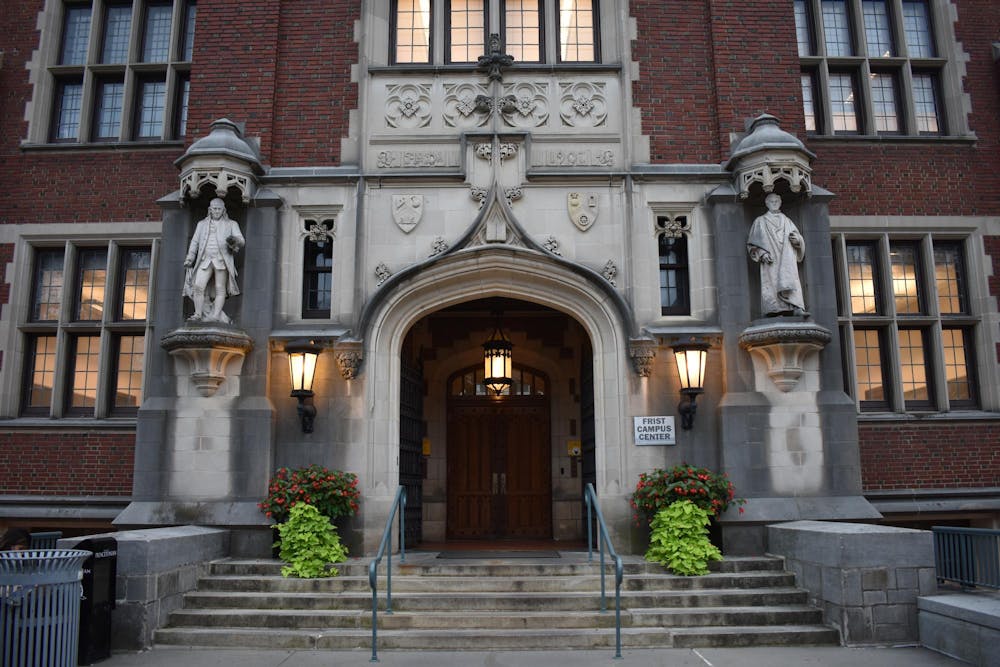The following is a guest contribution and reflects the author’s views alone. For information on how to submit a piece to the Opinion section, click here.
In a campus-wide message last week, President Christopher L. Eisgruber ’83 indicated that the Resources Committee of the Council of the Princeton University Community would take up a divestment request related to Israel.
I am the chair of that committee and a chemistry professor. Given the likelihood that this topic will be of interest to many in our community, I want to explain how divestment requests are handled at Princeton.
At the outset, I should say that I can’t predict whether the process for handling this request will be a short or a long one. In some cases, it is quickly apparent that divestment and dissociation standards cannot be met, and the question is quickly resolved. In others, a longer deliberative process is needed to ensure careful consideration of input from the broad community. A successful proposal is necessarily lengthy and can take years.
The Resources Committee, which is composed of faculty, students, and staff, mainly considers questions of general policy concerning the procurement and management of the University’s financial resources. It is also the only body charged with making recommendations to Princeton’s Board of Trustees about potential divestment actions. The Board has ultimate authority over acting upon these decisions.
It is the standard practice of the Resources Committee to consider any and all divestment and dissociation requests filed directly with the committee, as this one was on April 29, and to undertake a deliberative process that encourages all interested members of the community to participate.
Beginning a deliberative process does not mean a decision to divest is likely. Indeed, divestment is always unlikely at Princeton, as the trustees have long articulated a “strong presumption against the University as an institution taking a position or playing an active role with respect to external issues of a political, economic, social, moral, or legal character.” The rationale for this strong presumption is to preserve the University’s independence as a place for free inquiry.
That said, the University does sometimes, if rarely, divest — and “dissociate,” under our expanded approach at Princeton — as it did recently from segments of the fossil fuel industry, and decades earlier from companies implicated in apartheid South Africa and in the Darfur region of western Sudan.

I will try to explain our dissociation standards and process briefly, but also encourage anyone interested in engaging with us to review this trustee document, which is our committee’s primary guide.
Divestment means selling investments held by the Princeton endowment. The University’s strong presumption against taking political stances “applies with full force to the management of its endowment,” as noted by President Eisgruber in a 2015 correspondence with a former committee chair. Dissociation goes further than divestment and means severing any other relationships that involve a financial component, such as research grants.
The only way to overcome the strong presumption against divestment and dissociation at Princeton is for a proposal to meet criteria established by the trustees. There must be “considerable, thoughtful, and sustained campus interest” on a dissociation question, it must implicate a “central University value,” and it must appear to us possible that the whole University community can reach widespread deliberative agreement — consensus — on a dissociation question.
In judging any proposal against these high standards, it is our committee’s duty to assess the “magnitude, scope, and representativeness of the expressions of campus opinion” on the question. We do that by endeavoring to hear from all Princeton constituencies and give all interested parties a fair and equal opportunity to weigh in.

The committee will meet again in the coming days to get clarity on the dissociation question before us and to establish a process that will allow us to get broad community input.
Whether short or long, I can promise you that we will run a process that allows all perspectives and views to be carefully considered by our committee.
John T. (Jay) Groves is the Hugh Stott Taylor Chair of Chemistry and chair of the Resources Committee of the Council of the Princeton University Community.








